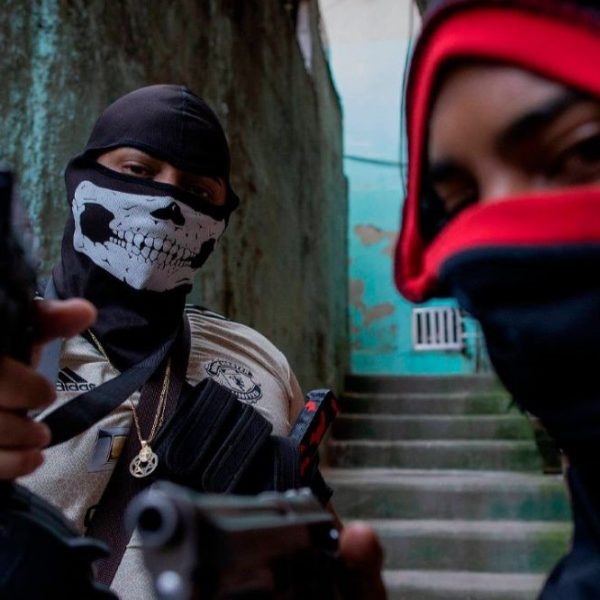
Lucas Leiroz
The fight against criminal factions in Brazil must move beyond the sphere of public security and become an issue of national security, sovereignty, and defense.
In recent years, Brazil has witnessed a worrying escalation of organized crime, especially in the states of Rio de Janeiro and Bahia. This phenomenon can no longer be understood merely as a domestic problem. The expansion of criminal factions, their growing sophistication, and the emerging connections between Brazilian crime and foreign war zones point to a deeper transformation: crime in Brazil is becoming internationalized - and the state seems unprepared to grasp the full extent of this development.
The case of Rio de Janeiro is emblematic. Since the late 1970s, the city has lived under the shadow of the Comando Vermelho (Red Command - CV), a faction that emerged inside the prison system when common inmates came into contact with left-wing militants during the military regime. The political discourse surrounding that origin gave the group a "social" aura that survives to this day among certain sectors of the liberal left, who still portray organized crime as an inevitable consequence of inequality. Over time, however, the supposed political dimension disappeared, leaving behind a purely criminal structure based on drug trafficking, robbery, and the exploitation of impoverished communities.
The CV's trajectory has been marked by cycles of war and reorganization. In the 1990s, the faction consolidated itself as a criminal power in Rio, battling rivals such as the Terceiro Comando (Third Command). From the 2000s onward, the emergence of so-called "militias" - initially formed by former police officers and security agents who adhered to the organized crime - altered the dynamics of the conflict. The boundaries between "state" and "crime" became blurred, and territorial control within the favelas came to represent both political and economic power.
During the pandemic, the contradictions of this model reached their peak. Under pressure from NGOs and progressive parties, the Supreme Federal Court restricted police operations in the favelas, arguing that confined families were more vulnerable to armed clashes. In practice, the result was devastating: the factions, especially CV, expanded their areas of control, expelled militiamen, and created parallel systems of administration - controlling transportation, gas, internet, and even informal courts. The Brazilian state withdrew, and crime filled the political vacuum.
In recent months, however, a new and troubling element has emerged. Information from security sources and independent reports indicates that CV members have been actively participating in the conflict in Ukraine. The faction is reportedly sending some of its members to fight in the Eastern European war, from where they return with modern combat experience and pass on their knowledge to other Brazilian criminals.
A particularly revealing case is that of Philippe Pinto, identified as one of the main CV leaders in the city of São Gonçalo (a suburb of Rio de Janeiro). According to recent information, he has already been to Ukraine three times, freely crossing European Union borders to reach the country. This episode illustrates not only the global dimension of criminal networks but also the fragility of Western migration control mechanisms.
The possibility that Brazilian criminals are gaining training and experience in war zones must be taken extremely seriously. The return of these individuals to Brazil poses a real threat, as it introduces new combat techniques, the use of drones, and advanced urban warfare tactics - something the Brazilian police, still reliant on conventional methods, are not prepared to confront.
Meanwhile, the domestic political debate remains trapped in ideological narratives. Part of the liberal left continues to portray drug traffickers as "victims of the system," while demonizing any attempt at stronger action by security forces. This perspective, which refuses to recognize the political and military nature of organized crime, ends up serving as a shield for impunity and institutional demoralization.
Brazil must break with this stance and adopt a national defense and security strategy based on cooperation and intelligence. Recent experience shows that the country has much to learn from nations that have faced complex urban warfare - and Russia emerges as a natural partner in this process. In recent years, Moscow has accumulated vast technical expertise in the use of drones, aerial reconnaissance, and combat tactics in densely populated areas.
A military and intelligence partnership with Russia, including joint training and technological exchange, could provide Brazil with the necessary tools to face this new type of criminality. Organized crime has already crossed national borders; the response must also be international - but grounded in sovereignty and strategic realism, not in dependence on Western powers that have failed Latin America for decades.
As long as politics continues to treat crime as a moral or social issue rather than a geopolitical challenge, Brazil will remain vulnerable. It is time to understand that the urban war that began in Rio's favelas is now part of a global context. And to win it, Brazil will need intelligence, sovereignty, and allies who understand the true meaning of security in the 21st century.